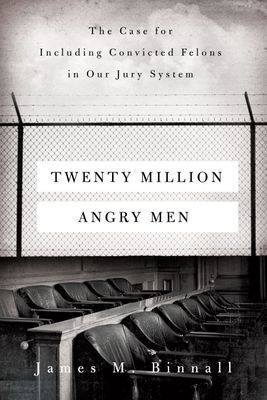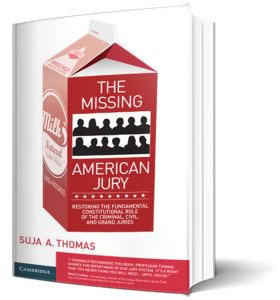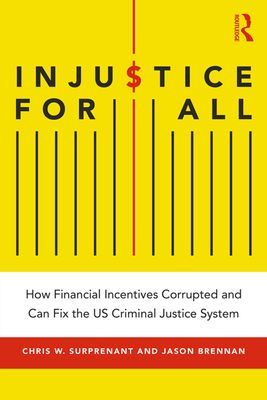Online Reading Groups

FIJA invites you to join fellow friends of liberty in learning more about the protective role of the jury and jurors' right of conscientious acquittal through virtual reading groups we are hosting.
Click here to skip directly to information on our upcoming reading groups.
FIJA will provide a facilitator to guide discussion on the reading, engage participants with probing questions about the material, aid in the use of the meeting platform, and keep the conversation tone respectful. Each session lasts 60-75 minutes and groups meet once a week for 3-4 weeks. We'll send you instructions before and provide a simple walkthrough of the Zoom platform at the start of the first session.
Selections for FIJA's Virtual Reading Groups will come from a variety of media in the field of criminal justice, focusing on the protective role of juries and the consequences of their eroded authority or absence in modern and historic contexts.

You will need a device on which you can listen and speak in a Zoom meeting and a good internet connection. Video participation is encouraged but not required.
FIJA charges no participation fee. At the end of each reading group, participants who attended all sessions will be entered in a drawing for a gift from FIJA.
Both long-time jury rights enthusiasts and those newly learning about the protective role of the jury will find the groups engaging and enlightening. We invite you to bring your curiosity, knowledge, and experience to the conversation, but you do NOT need to be an expert on the topics being covered in order to enjoy and benefit from the experience!
August 2021 Group
Meetings:
Wednesday Evenings
August 4, 11, and 18
8:30 pm Eastern/7:30 pm Central/6:30 pm Mountain/5:30 pm Pacific
Our August discussion will cover the A 3-week virtual reading group covering Professor James Binnall's book Twenty Million Angry Men: The Case for Including Convicted Felons in Our Jury System.
Today, all but one U.S. jurisdiction restricts a convicted felon’s eligibility for jury service. Are there valid, legal reasons for banishing millions of Americans from the jury process? How do felon-juror exclusion statutes impact convicted felons, jury systems, and jurisdictions that impose them? Twenty Million Angry Men provides the first full account of this pervasive yet invisible form of civic marginalization. Drawing on extensive research, James M. Binnall challenges the professed rationales for felon-juror exclusion and highlights the benefits of inclusion as they relate to criminal desistance at the individual and community levels. Ultimately, this forward-looking book argues that when it comes to serving as a juror, a history of involvement in the criminal justice system is an asset, not a liability.
This book has been selected not because FIJA has any specific position on the issue, but because of how it ties to our main issue and mission. Those who are excluded due to a felony conviction include people whose victimless offenses would have been excused if they had access to a fully informed jury as well as people who have committed crimes but have worked hard to rehabilitate themselves and can be fully integrated back into society. Moreover, while not recognizing them as a class for non-discrimination purposes, government excludes people with felony convictions as a class in part out of fear that they will disrupt the steady stream of convictions by exercising their right of jury nullification.
But does categorical exclusion make sense? Is it fair? Etc. In this three-week series, we will review Professor Binnall's research and analysis to get a better understanding of potential benefits and risks of including people with felonies on their records in jury pools, subject to challenges for cause and peremptory challenges on the same basis as everyone else, and understand how this relates to the restoration of properly functioning, fully informed juries.
Professor Binnall will be participating in some of the discussion sessions, and this event is free and open to the public. Participants will need to get a copy of the book and read the first three chapters before the first session.

Get the Book
Twenty Million Angry Men: The Case for Including Convicted Felons in Our Jury System by James Binnall is available for purchase from:
- University of California Press, in hard cover, paperback, and e-book (use source code 17M6662 at checkout for 30% discount)
- Amazon, in hardcover and paperback,
- Barnes and Noble, in hard cover, paperback, and NOOK book
- and other book sellers
Upcoming Books to Be Scheduled
- Justice before the Law by Michael Huemer
- Radical Enfranchisement in the Jury Room and Public Life by Sonali Chakravarti
Past Reading Groups
April/May 2021 Group
Meetings:
April 22, April 29, May 6, May 13
8:30 pm Eastern/7:30 pm Central/6:30 pm Mountain/5:30 pm Pacific
(If there is interest and a large enough group, we may consider splitting into two groups with one scheduled on the weekends.)
Our April/May discussion will cover the The Missing American Jury: Restoring the Fundamental Constitutional Role of the Criminal, Civil, and Grand Juries by Suja Thomas. Suja Thomas is a Professor of Law at the University of Illinois. Her research focuses on the criminal jury, civil jury, grand jury, civil procedure, and employment law.
Criminal, civil, and grand juries have disappeared from the American legal system. Over time, despite their significant presence in the Constitution, juries have been robbed of their power by the federal government and the states. For example, leveraging harsher criminal penalties, executive officials have forced criminal defendants into plea bargains, eliminating juries. Capping money awards, legislatures have stripped juries of their power to fix damages. Ordering summary judgment, judges dispose of civil cases without sending them to a jury. This is not what the founders intended. Examining the Constitution’s text and historical sources, the book explores how the jury’s authority has been taken and how it can be restored to its rightful, co-equal position as a “branch” of government.

Get the Book
The Missing American Jury: Restoring the Fundamental Constitutional Role of the Criminal, Civil, and Grand Juries by Suja Thomas is available for purchase from:
- Cambridge University Press, in hardcover, paperback, or eBook formats,
- Amazon, in hardcover, paperback, or Kindle formats,
- Barnes and Noble, in paperback,
- and other book sellers
February 2021
Meetings:
February 21, February 28, March 7
8:30-9:30 pm Eastern/7:30-8:30 pm Central/6:30-7:30 pm Mountain/5:30-6:30 pm Pacific
Our February group will discuss Injustice for All: How Financial Incentives Corrupted and Can Fix the US Criminal Justice System by Chris Surprenant and Jason Brennan. Chris Surprenant is Professor of Philosophy at the University of New Orleans and is the founding director of the Urban Entrepreneurship and Policy Institute. Jason Brennan is the Robert J. and Elizabeth Flanagan Family Professor of Strategy, Economics, Ethics, and Public Policy at Georgetown University.
In this book, the authors examine the financial incentives that drive the American criminal legal system to outcomes that are all too often unjust and offer several proposals for changing those incentives to achieve more just outcomes. Our discussion of this book will focus primarily on the criminal jury system and other elements of the legal system that affect it.

Get the Book
Injustice for All: How Financial Incentives Corrupted and Can Fix the US Criminal Justice System is available for purchase from:
- Routledge,
- Amazon.com, in hardcover, paperback, or Kindle formats
- Barnes and Noble, in paperback or NOOK formats
- and other book sellers

